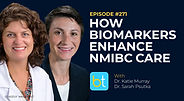BackTable / Urology / Podcast / Episode #92
Evolving the Management of Stage 2 Seminoma
with Dr. Siamak Daneshmand
In this episode of BackTable, Dr. Bagrodia interviews Dr. Sia Daneshmand, chief of urologic oncology at the University of Southern California, about the research trials and treatment of stage II seminomas.
Be part of the conversation. Put your sponsored messaging on this episode. Learn how.

BackTable, LLC (Producer). (2023, April 12). Ep. 92 – Evolving the Management of Stage 2 Seminoma [Audio podcast]. Retrieved from https://www.backtable.com
Stay Up To Date
Follow:
Subscribe:
Sign Up:
Podcast Contributors
Synopsis
FIrst, Dr. Daneshmand defines stage II seminomas, which are seminomas that have spread outside of the testicles to the retroperitoneal lymph nodes. Stage II seminomas are further subclassified into IIa, b, or c depending on size and number of affected lymph nodes. This disease stage can present on Initial seminoma diagnosis or occur after a relapse of a stage I seminoma. There are 3 options for standard treatment for stage II seminomas: radiation therapy, chemotherapy, or retroperitoneal lymph node dissection (RPLND). Dr. Daneshmand recommends a monotherapy option to minimize toxicities and explains which treatment modalities are best for each subtype of stage II seminomas. Then, the doctors discuss common side effects of each modality. Radiation may cause cardiotoxicity, fatigue, enteritis, and secondary malignancy. Chemotherapy may cause neurotoxicity, nephrotoxicity, infertility, and tinnitus or hearing loss.
The doctors also discuss RPLND as a therapeutic option. Dr. Daneshmand explains that some patients may be hesitant at first to choose this option, as this has been a large open surgery with lengthy hospitalizations in the past. However, his technique involves only making a small midline incision and using an extraperitoneal approach. His RPLND patients usually only stay in the hospital for one day and fully recover by 2 to 3 weeks. He also discusses prospective RPLND trials on stage II seminomas, including his own research project. Both doctors agree that patients should be involved in shared decision making in order to weigh the cure rate against the comorbidity rate of each therapy.
Finally, Dr. Daneshmand speculates on the future of seminoma treatment, which he believes lies in advancements of individualized treatment based on biomarker data.
Resources
It Takes Balls Podcast
https://www.testicularcancerawarenessfoundation.org/it-takes-balls
The Materials available on BackTable are provided for informational and educational purposes only and are not a substitute for the independent professional judgment of a qualified healthcare professional in diagnosing or treating patients. Any opinions, statements, or views expressed are those of the individual contributors and do not necessarily reflect those of the publisher, platform, or any affiliated organization.















